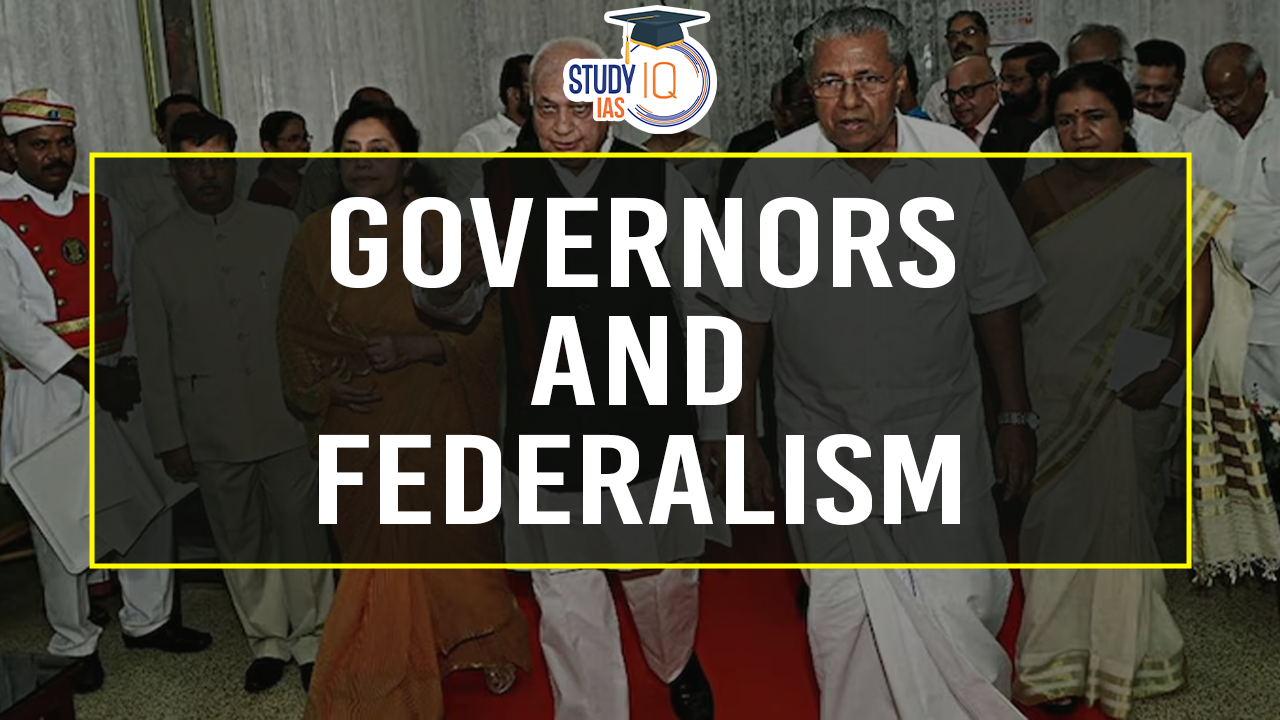Table of Contents
Context: The Supreme Court agreed to examine the Governor’s powers related to crucial Bills and eventually referred them to the President.
Article 200: Power of Governor Related to Bill
- Grant assent to the Bill.
- Withhold assent from the Bill.
- Reserve the Bill for the President’s consideration.
- Return the Bill (unless it is a Money Bill) to the legislature for reconsideration.
|
Fact |
|
Article 201: Presidential Assent for Reserved Bills
- Grant assent to the Bill.
- Withhold assent from the Bill.
- Return the Bill for reconsideration.
- Reconsideration of Reserved Bills:
- The legislature must reconsider a returned Bill within six months.
- Once passed again, it is presented to the President.
- The President is not obligated to grant assent to a reconsidered Bill.
Categories of State Bills Reserved for the President
- Mandatory Reservation:
- Bills that diminish the High Court’s powers.
- Bills impose taxes on water or electricity under certain conditions.
- Bills related to financial emergency provisions.
- Discretionary Reservation for Specific Purposes:
- To grant immunity from Articles 14 and 19 for:
- Acquisition of estates.
- Implementing Directive Principles of State Policy.
- To resolve conflicts with Union laws in Concurrent List subjects.
- Trade and commerce restrictions need presidential sanction.
- To grant immunity from Articles 14 and 19 for:
- General Reservation: Bills that do not fall into specific categories but are still reserved by the Governor under Article 200.
Challenges Associated with Bills Reserved for President’s Considerations
- Delay in Legislative Process: Bills reserved for the President’s consideration can experience significant delays. This prolongs the legislative process and can delay the implementation of critical policies.
- Example: TN Governor forwarded the Bill for exemption from the National Eligibility cum Entrance Test (NEET) to the President after considerable delay.
- Political Dynamics: The decision to reserve a bill may be influenced by political considerations, which can affect the impartiality of the decision-making process.
- Uncertainty and Ambiguity: The criteria and rationale for reserving bills are sometimes unclear, leading to uncertainty to certain bills being singled out.
- Federal-State Relations: When state legislation is reserved for the President’s consideration, it can lead to tensions between state governments and the central government.
Various Commissions Recommendations
| Commission | Recommendations |
| Sarkaria Commission | Governors should act on ministerial advice under Article 200, barring unconstitutional bills. |
| Governors should be impartial, not recently politically active, and not members of the ruling party. | |
| Punchhi Commission | Governors should decide on bills within 6 months. |
| Governors can be impeached by the State Legislature. | |
| A committee including the state’s Chief Minister should select Governors. | |
| National Commission to Review the Working of the Constitution (NCRWC) | Governors should decide on bills within 4 months. |
| Governors’ power to withhold assent should be limited to constitutionally stipulated cases. | |
| 2nd Administrative Reforms Commission | The Inter-State Council should formulate guidelines for the exercise of governors’ discretionary powers. |
| Rajamannar Committee on Centre-State Relations | Governors should function as constitutional heads of states, not as agents of the central government. |
Way forward
- Streamlining the Decision-making Process: Implement strict timelines for the President to decide on reserved bills, similar to the timelines suggested for Governors by various commissions.
- Enhancing Transparency: Define clear, transparent criteria for what constitutes a bill that must be reserved for the President’s consideration.
- Political Neutrality: Ensure that the decision to reserve a bill is based on constitutional or legal requirements rather than political considerations.
- Periodic Review and Feedback: Create a system for periodic review of the reservation process, involving feedback from state legislatures and the judiciary to continually refine the process.


 SHANTI Bill 2025: India Opens Nuclear Se...
SHANTI Bill 2025: India Opens Nuclear Se...
 Revamp of MGNREGA Scheme 2025
Revamp of MGNREGA Scheme 2025
 National Energy Conservation Awards 2025
National Energy Conservation Awards 2025

























